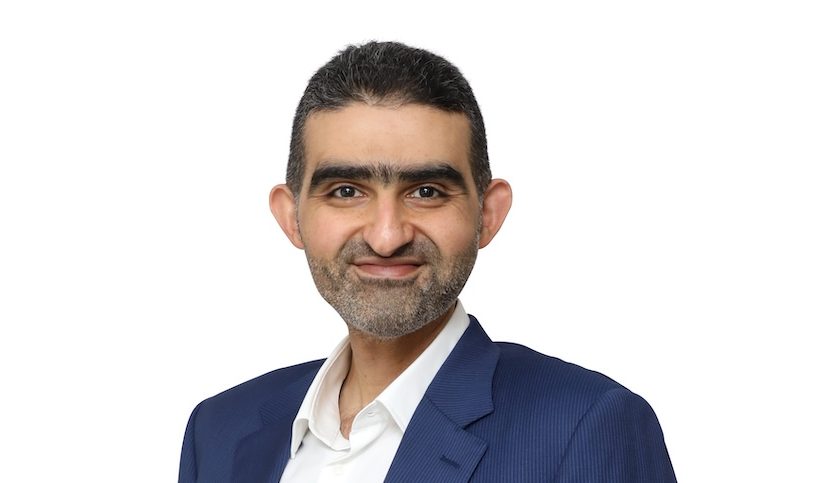Your heart is about the size of your fist, and on average it beats about 100,000 times a day. We go about our day without considering that this organ is keeping us alive, until it pounds faster or skips a beat. We spoke to Doctor Ahmad Alshatti, Consultant of Internal Medicine and Structural Interventional Cardiology at Taiba Hospital to learn more about heart health and what we can do to protect it.
Dr. Ahmad is the fourth of seven siblings, it gave him a strong sense of family and responsibility growing up. Today, he’s a happily married father of four wonderful children, which keeps him grounded and constantly striving towards learning and growing.
“I picked medicine as a career very early on when I was a teenager. The idea of both helping people and answer complex puzzles fits well in my career. My passion for cardiology grew during my medical studies, as it allowed me to combine the analytical thinking of internal medicine, the diagnostic skills of radiology, and the hands-on expertise of surgery,” he explains.

As a cardiologist, he sees two types of patients; patients who are already diagnosed with a heart disease and patients who visit for investigative checkups. For previously diagnoses patients, they are routinely monitored to make sure that their condition is controlled and to be able to intervene before things escalate. For individuals who don’t have a diagnosis or symptoms yet are risk assessed and given the necessary tests including blood tests, stress testing and cardiograms. The Doctor can then provide a plan.
It turns out that a lot what we think is true about heart disease is untrue, Dr. Ahmad helped clear up some common misconceptions which could lead to delayed diagnosis or improper care.
Heart attacks always have obvious symptoms: Many believe heart attacks always come with intense chest pain, but some heart attacks can be “silent,” with mild symptoms or even none.
Heart disease only affects the elderly: People often think heart disease is just for older adults, but it can occur in younger people, especially with poor lifestyle habits or genetic factors.
If you have no symptoms, your heart is healthy: Many heart conditions, like high blood pressure or early-stage coronary artery disease, may show no symptoms until they become serious.
Cholesterol from food directly causes heart disease: While diet impacts cholesterol, other factors like genetics and overall lifestyle are equally important in heart disease risk.
Exercise is bad for people with heart conditions: In many cases, controlled and supervised exercise is recommended to strengthen the heart and improve cardiovascular health.
While anyone can develop heart disease there are some factors that can increase your risk such as aging, being male, diabetes, hypertension, high cholesterol, obesity, a sedentary lifestyle and smoking. While we can’t stop getting older, we can encourage smokers to quit and try to include more physical activity into our daily lives.
Luckily for us, advancements made in cardiology and treatment options have been huge in the past few years. In term of diagnostics the use of wearables has become approved as a way to monitor the heart rhythm and to record certain abnormalities. The quality of cardiac CT scans has improved, and physicians are able to obtain great images with little or no preposition.
As for therapeutic improvement, many new medications were released for heart failure which can improve symptoms, lower admission rates and mortality which is a huge move forward.
Cardiac surgeries that used to be performed with an open chest technique have been replaced with catheter based therapies. This has helped treat more patients who were not candidates for surgery in the past as well as improve patient quality of care post the procedure.

Dr. Ahmad gave us some practical tips to help improve heart health that you can take today:
Increase Physical Activity: Aim for at least 30 minutes of moderate exercise (walking, cycling, swimming) most days of the week.
Eat a Heart Healthy Diet: Focus on fruits, vegetables, whole grains, lean proteins, and healthy fats (like olive oil and nuts). Limit salt, sugar, and processed foods.
Stay Hydrated: Drink plenty of water throughout the day, avoiding sugary drinks and excessive caffeine.
Manage Stress: Practice relaxation techniques like deep breathing, meditation, or yoga to reduce stress levels.
Avoid Smoking: If you smoke, consider quitting.
Maintain a Healthy Weight: Work towards a healthy weight through diet and exercise to lower heart disease risks.
Monitor Blood Pressure and Cholesterol: Regularly check these levels and consult your doctor if they’re high.
Get Enough Sleep: Aim for 7-9 hours of quality sleep each night, as poor sleep can increase heart disease risks.
Limit Sitting Time: Break up long periods of sitting with short walks or stretches to keep blood circulation active.
Cardiac health is an investment we make early in life, but it is never too late to start now.
Taiba Hospital is located in Sabah Al Salem, off of route 30 on Road 3. Call them 24 hours at 180 80 88. For updates and information, visit the website taibahospital.com, and follow them on Instagram @taibahospital.








